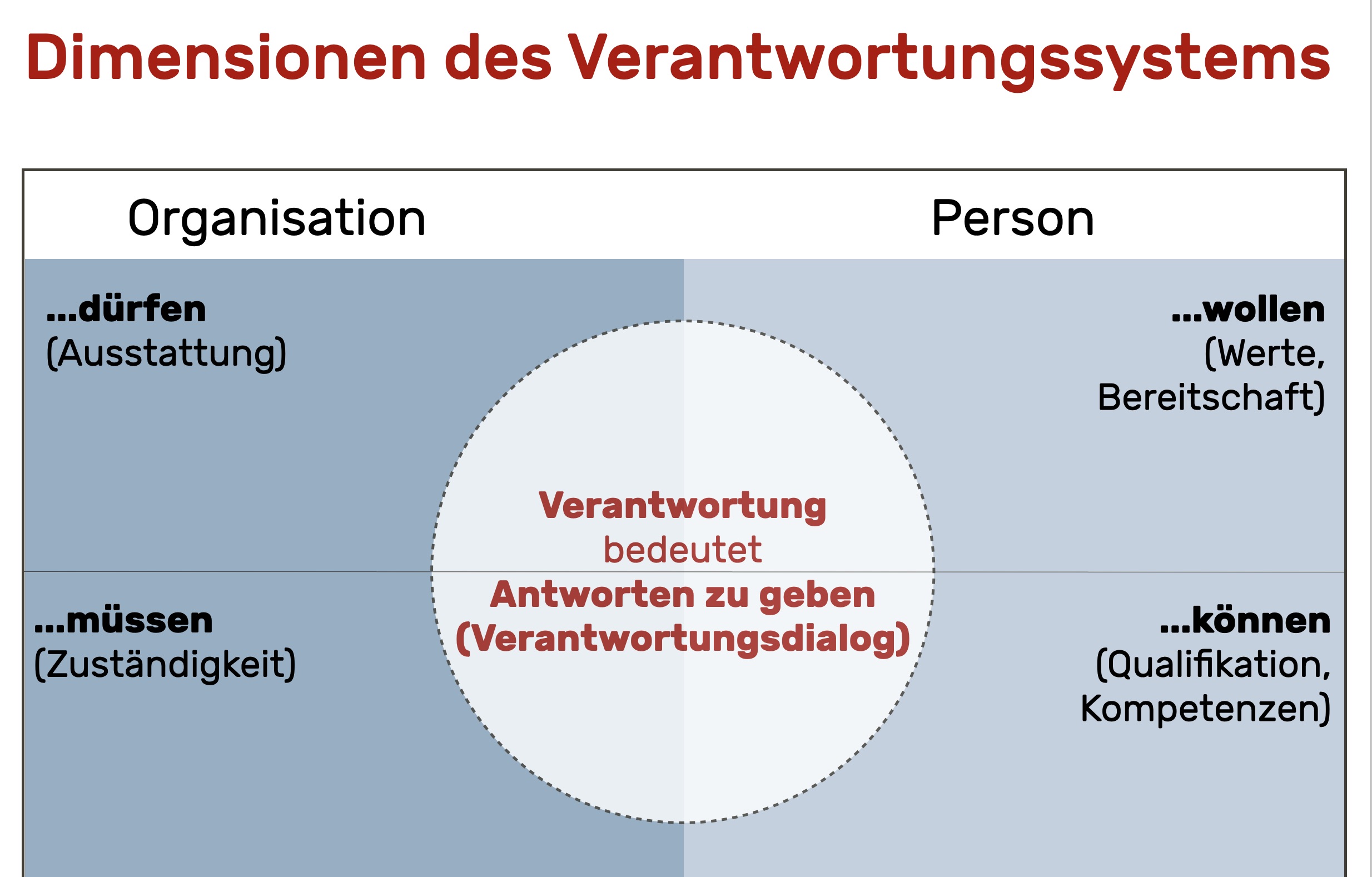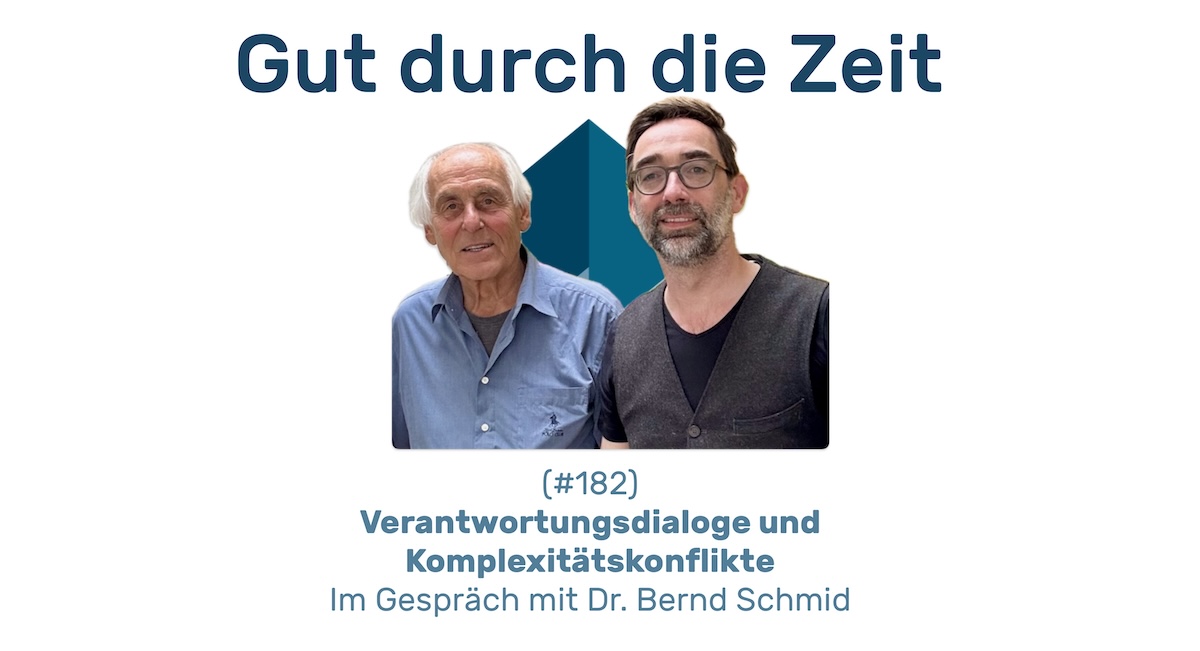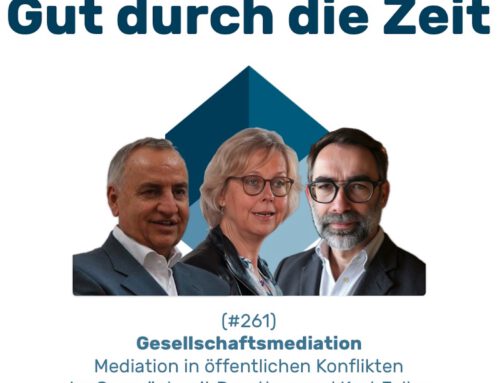INKOVEMA Podcast „Well through time“
#182 – Dialogues of responsibility and conflicts of complexity
The must, may, can and want in organisations.
In conversation with Dr Bernd Schmid
Dr Bernd Schmid, founder of the Institute for Systemic Counselling in Wiesloch (isb), founding member of the German Federal Association of Coaching, the Society for Continuing Education Supervision and former official of the DGTA, as well as founder of the Schmid Foundation in 2012, which offers support to non-profit companies to enable professional counselling and further development. Multiple award winner, e.g. Eric Berne Memorial Award 2007, Life Achievement Award of the further education industry 2014, Life Achievement Award winner of the DGTA 2017.
Well through time.
The podcast about mediation, conflict coaching and organisational consulting.

Contents
Responsibility dialogues
Responsibility dialogues deal with the question of who is responsible for what and for whom and how this responsibility can be sensibly exercised. Responsibility is not understood as a rigid duty, but as a dynamic concept that changes depending on the context and situation. The dialogue promotes an understanding that responsibility often has to be shared and negotiated in order to be distributed effectively and fairly.
One of the central concerns of the responsibility dialogues is to implicit and unclear responsibility structures transparent and Misunderstandings or conflicts resulting from an unclear perception of responsibility, to prevent this. The dialogue creates the basis for achieving a Common basis of responsibility that does justice to all those involved.
Implementation of responsibility dialogues
Responsibility dialogues are usually conducted in moderated discussions. These can take place in teams, between managers and employees or in other constellations in which responsibility plays a role. The process of such a dialogue can be structured as follows:
Introduction and setting the framework: Firstly, the context and meaning of responsibility is clarified. It is explained that it is about making people aware of responsibility, reflecting on it and, if necessary, redistributing it.
Identification of areas of responsibility: The participants jointly identify the various areas of responsibility that are relevant to their situation. This can be done at an individual level (personal responsibility) or at a systemic level (responsibility within the team or organisation). Keyword: fit between organisation and person.
Clarification and reflection: This step involves reflecting on who is currently responsible for which areas and whether this distribution makes sense. Questions may arise such as: Are there overlapping responsibilities? Are there areas of responsibility that are not sufficiently covered? Are all those involved aware of their responsibilities?
Negotiation and redistribution: If necessary, areas of responsibility are redistributed or defined more clearly. This step often requires negotiation and compromise, as the aim is to create a fair and effective responsibility structure.
Conclusion and agreements: At the end of the dialogue, concrete agreements are made on how responsibility will be handled in future. These agreements can be documented and regularly reviewed.
Responsibility dialogues are therefore a valuable tool to improve collaboration, create clarity in complex systems and increase awareness of one's own role and responsibility. They help to ensure that responsibility is understood not just as a burden, but as conscious action in the interests of joint success.





Leave A Comment